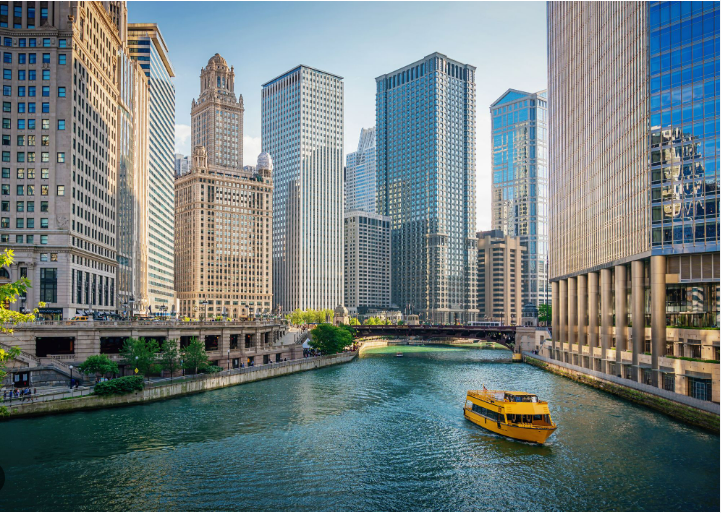What is The Penalty for Driving Without Insurance in Illinois?


Driving without insurance in Illinois is against the law and can lead to fines and a suspended license. Getting caught without insurance could also raise your car insurance premiums and expose you to significant out-of-pocket expenses if you’re involved in an accident. Illinois drivers generally pay less for car insurance compared to the national average. As you’ll learn in this article, paying your insurance premiums isn’t just a legal obligation—it’s often the financially prudent decision.
Minimum insurance required in Illinois
Each state sets its own minimum requirements for vehicle insurance to ensure legal street use. In Illinois, known as The Prairie State, drivers must maintain at least the following coverage limits for bodily injury, property damage, and uninsured motorist protection:
- $25,000 of bodily injury liability coverage per person
- $50,000 of bodily injury liability coverage per accident
- $20,000 of property damage liability coverage
- $25,000 of uninsured motorist bodily injury liability coverage per person
- $50,000 of uninsured motorist bodily injury liability coverage per accident
These limits are often represented as 25/50/20 for bodily injury and property damage, and 25/50 for uninsured motorist coverage in your insurance policy documents. While these minimum requirements are typically the most affordable option, insurance experts often advise opting for higher liability limits if your budget permits. Inflation affects everything from car prices to medical expenses, meaning a minimum coverage policy may not provide adequate financial protection in the event of a multi-vehicle accident.
Penalties for driving without insurance in Illinois
According to Illinois state Mandatory Insurance Law 625 ILCS 5/3-707, all vehicles must maintain the necessary insurance coverage as part of their valid registration to avoid potential penalties such as:
Registration suspension
In 2020, the Secretary of State launched an Electronic Liability Insurance Verification program for Illinois-registered vehicles. All insurance providers licensed in the state are electronically connected to this system. Twice annually, the system automatically verifies that all registered vehicles meet the state’s required liability coverage. If initial verification fails, a second check occurs after 30 days. Failure to insure the vehicle by this point results in registration suspension.
During suspension, the vehicle cannot be operated, but you can drive other insured vehicles. To reinstate registration, proof of insurance and a $100 fine are required. However, more severe consequences can follow if caught driving without insurance during a traffic stop or after an accident, as discussed next.
Paying a fine
In Illinois, the penalty for a first offense of driving without insurance is classified as a petty offense, resulting in fines ranging from $500 to $1,000. For drivers convicted of uninsured driving three times or more, the fine can increase to $1,000. However, if an uninsured driver causes an accident resulting in bodily injuries, it escalates to a class A misdemeanor. In such cases, fines may reach up to $2,500, along with additional fees and the possibility of imprisonment.
In most situations, drivers who can demonstrate they had active insurance coverage when issued a ticket for driving without insurance may avoid paying a fine. Alternatively, those who obtain insurance before their court appearance might have their fine reduced to $100.
License suspension
For a first-time offense, your license can be suspended for up to three months. Repeat offenders or those caught driving during a suspension may face an additional six months or more of suspension. In Illinois, the standard fee for reinstating a suspended license is $100.
Vehicle impound
Under amended state law 625 ILCS 5/4-203, driving uninsured in Illinois empowers law enforcement to tow and impound your vehicle. Storage fees at the impound site can accumulate rapidly, underscoring the urgency of promptly resolving your insurance status. Failure to comply may ultimately result in the repossession of your vehicle.
Higher insurance premiums
Being caught driving without insurance in Illinois typically categorizes you as a high-risk driver in the eyes of insurance companies. When seeking insurance thereafter, you can expect higher rates due to the lapse in coverage. In some cases, insurers may even decline to provide coverage to drivers with such a record of insurance lapses.
SR-22 requirement
If you are caught driving without insurance multiple times and receive court supervision, you will eventually need to obtain an SR-22 insurance certificate for a minimum of three years, and potentially longer. An SR-22 is a specialized insurance certificate that ensures the state is informed monthly about your maintenance of the required minimum insurance coverage mandated by Illinois. Failure to comply with SR-22 requirements can result in the suspension of your license by the state.
Getting into an accident without insurance

If you’re an uninsured driver in Illinois involved in an accident, you may face several penalties, including additional fines and potential suspension of your driver’s license. The outcome for an uninsured driver in an Illinois accident depends on fault, as determined by state law using modified comparative negligence.
Under this standard, you can only recover damages from the other party if you are less than 50 percent at fault. If you are less than 50 percent at fault, you can pursue a third-party claim through the more at-fault driver’s insurance for any bodily injuries or property damage. However, if you are found to be at fault for the accident, the other driver’s uninsured motorist coverage will likely cover what your insurance would have paid them.
While the claims process can be lengthy, once resolved, the other driver’s insurance company may seek to recover losses by pursuing a lawsuit against you.
Getting into an accident with an uninsured driver
To minimize financial risk in the event of a collision with an uninsured driver, drivers may consider discussing increased uninsured motorist coverage with their insurance agent. This coverage can assist in covering medical expenses for both the driver and passengers if they are involved in an accident caused by an uninsured driver. While Illinois law mandates a minimum of 25/50 uninsured motorist coverage, drivers have the option to raise these limits for enhanced financial security.
Alternatively, drivers can opt for medical payments coverage, which provides assistance with medical expenses regardless of fault in the accident. This optional coverage extends to both the driver and passengers.
According to the Insurance Information Institute, approximately 16.3 percent of drivers in Illinois are uninsured. Given this risk assessment, customizing an insurance policy with these coverage options could be a prudent strategy to safeguard finances against potential accidents involving uninsured motorists.








